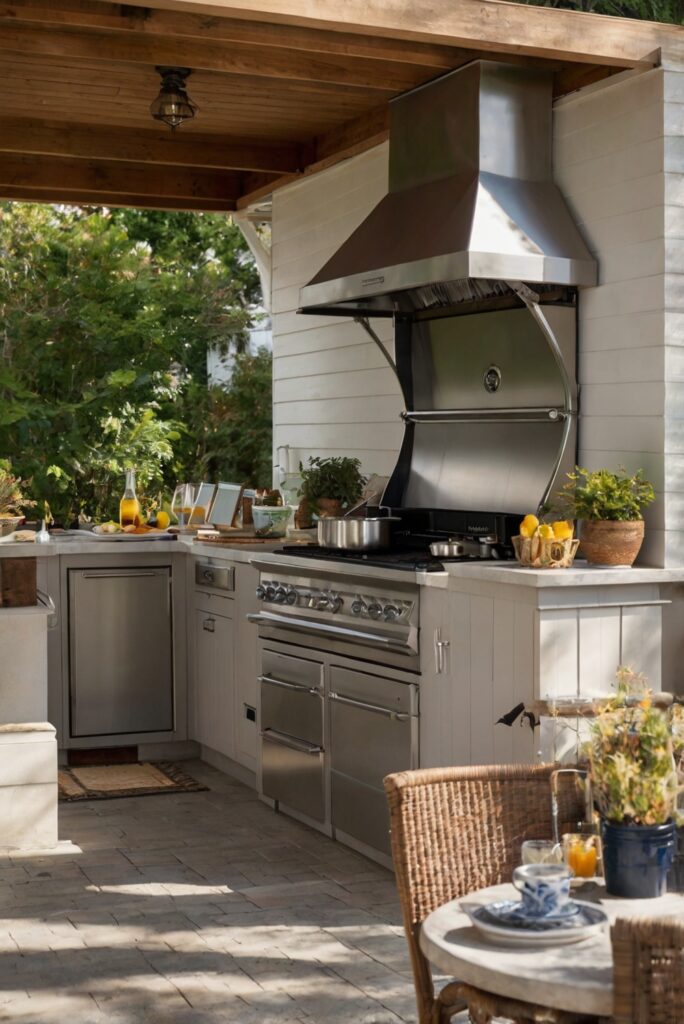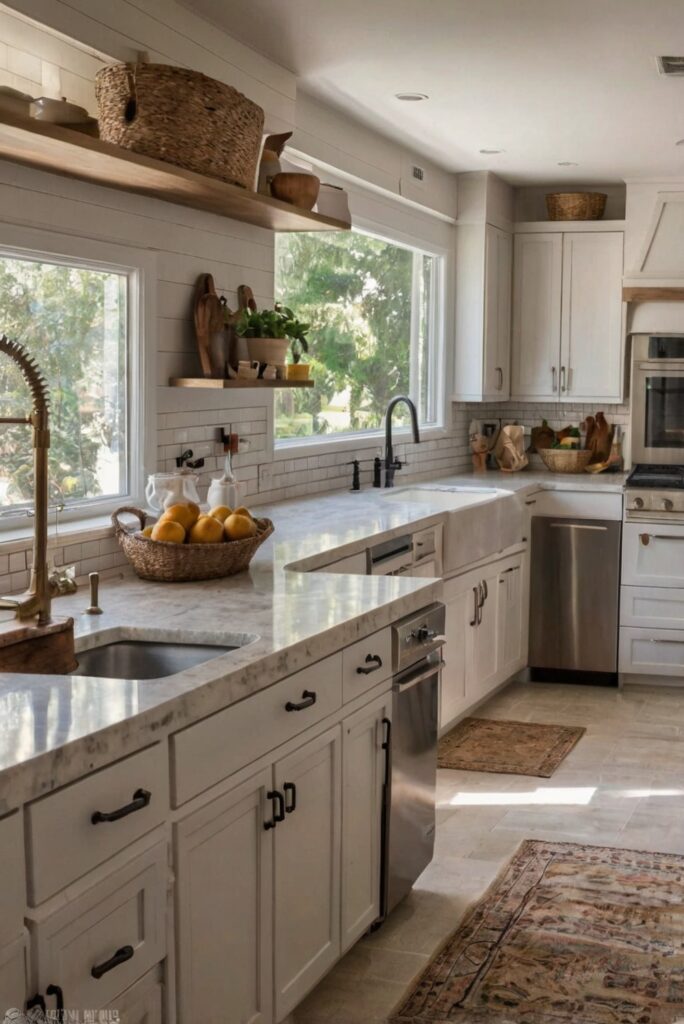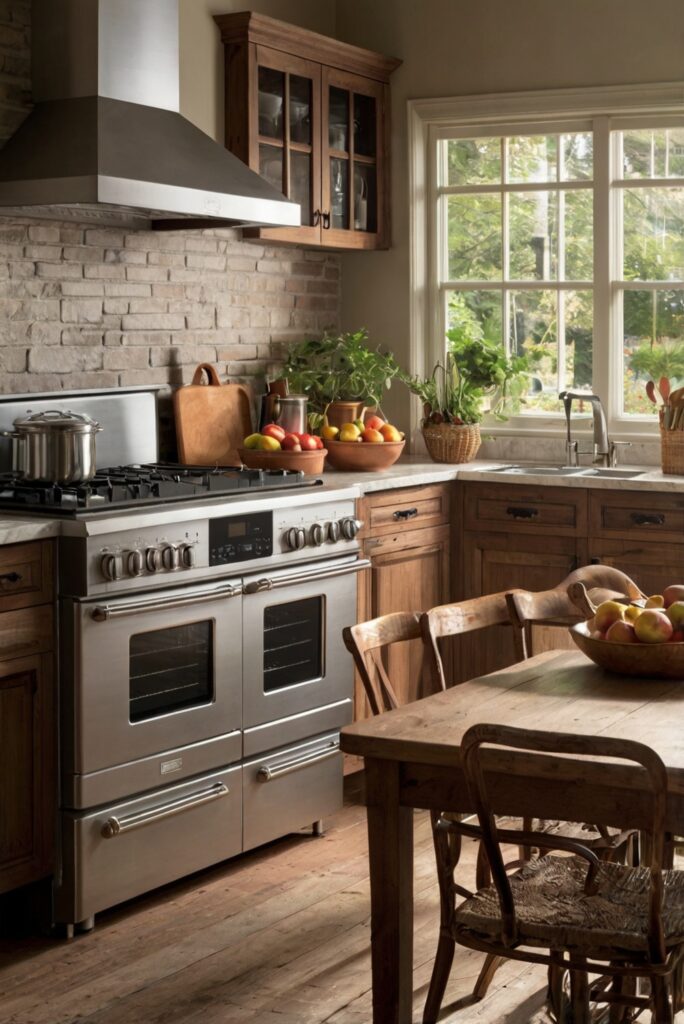Ready to elevate your outdoor space with eco-friendly appliances? Discover the best sustainable products to enhance your outdoor kitchen routine in style.
**What Are the Best Appliances for a Sustainable Outdoor Kitchen?**
The best appliances for a sustainable outdoor kitchen include energy-efficient grills, solar-powered lighting, compost bins, and rainwater harvesting systems. Energy-efficient grills such as those powered by natural gas or propane reduce energy consumption and emissions. Solar-powered lighting not only illuminates the space without adding to your electricity bill but also utilizes renewable energy. Compost bins help manage kitchen waste and produce nutrient-rich compost for gardening. Rainwater harvesting systems collect and store rainwater for outdoor use, reducing the need for municipal water. Incorporating these appliances into your outdoor kitchen can promote sustainability and eco-friendliness in your home decorating and design.
What Are the Best Appliances for a Sustainable Outdoor Kitchen?
Energy-Efficient Refrigerator:
When setting up a sustainable outdoor kitchen, investing in an energy-efficient refrigerator is crucial. Look for models with ENERGY STAR certification to ensure they consume less energy. Additionally, consider features like adjustable temperature settings and energy-saving modes to further reduce energy consumption.
Solar-Powered Outdoor Lights:
Solar-powered outdoor lights are an excellent addition to a sustainable outdoor kitchen. These lights are powered by the sun, eliminating the need for electricity and reducing your carbon footprint. Look for LED lights that are both energy-efficient and long-lasting.
Compost Bin:
A compost bin is an essential appliance for a sustainable outdoor kitchen. Instead of throwing food scraps in the trash, you can compost them to create nutrient-rich soil for your garden. This not only reduces waste but also promotes sustainability in your outdoor space.
Water-Efficient Dishwasher:
Investing in a water-efficient dishwasher is another way to make your outdoor kitchen more sustainable. Look for models with a high energy efficiency rating and shorter wash cycles to minimize water usage. Additionally, consider using eco-friendly detergents to further reduce environmental impact.
Electric Grill:
An electric grill is a sustainable alternative to traditional gas or charcoal grills. Electric grills are energy-efficient and produce fewer emissions, making them an eco-friendly choice for outdoor cooking. Look for models with adjustable temperature control and quick heating elements for optimal performance.
In conclusion, when designing a sustainable outdoor kitchen, it is essential to prioritize energy-efficient appliances such as refrigerators and lights. Additionally, incorporating compost bins and water-efficient dishwashers can further enhance sustainability. Finally, choosing an electric grill over traditional options can help reduce emissions and energy consumption. By focusing on these key appliances, you can create an environmentally friendly outdoor kitchen that promotes sustainability and reduces your carbon footprint.
1. What are some eco-friendly appliances for a sustainable outdoor kitchen?
When creating a sustainable outdoor kitchen, it’s essential to choose energy-efficient appliances. Opt for appliances that have high Energy Star ratings, such as a solar-powered refrigerator or a propane-fueled grill. These appliances can help reduce energy consumption and lower your carbon footprint. Additionally, consider investing in a compost bin to minimize food waste and promote sustainability in your outdoor kitchen.
2. How can I make my outdoor kitchen more environmentally friendly?
To make your outdoor kitchen more environmentally friendly, focus on using reusable and sustainable materials. Choose countertops made from recycled materials, such as reclaimed wood or recycled glass. Additionally, install energy-efficient lighting and consider using solar-powered outdoor appliances. Implementing a rainwater harvesting system can also help reduce water waste in your outdoor kitchen.
3. What are the benefits of using sustainable appliances in an outdoor kitchen?
Using sustainable appliances in your outdoor kitchen can have various benefits. Not only can these appliances help reduce your environmental impact, but they can also lower your energy bills in the long run. Sustainable appliances are often more durable and efficient, leading to cost savings over time. By choosing eco-friendly appliances, you can enjoy a more sustainable outdoor cooking experience while also contributing to a greener planet.
4. What are some tips for choosing sustainable appliances for an outdoor kitchen?
When selecting appliances for a sustainable outdoor kitchen, consider factors such as energy efficiency, material sustainability, and durability. Look for appliances with high Energy Star ratings and opt for models that use renewable energy sources, such as solar power. Choose appliances made from eco-friendly materials, such as stainless steel or recycled plastic. Additionally, prioritize durability and longevity when selecting appliances to minimize waste and promote sustainability in your outdoor kitchen.
5. How can I design an outdoor kitchen that promotes sustainability?
To design a sustainable outdoor kitchen, focus on incorporating eco-friendly features and appliances. Choose energy-efficient appliances, such as a low-energy grill or a compost bin. Utilize sustainable materials for countertops, flooring, and cabinetry to reduce your environmental impact. Create a functional layout that promotes efficient use of space and resources. Consider installing a rainwater collection system to conserve water and minimize waste. By incorporating these sustainable design elements, you can create an outdoor kitchen that is both environmentally friendly and efficient.



